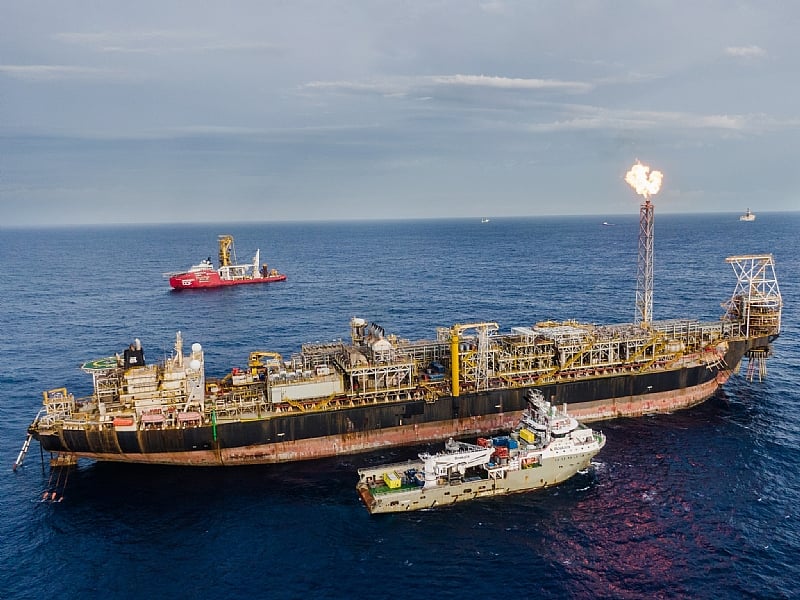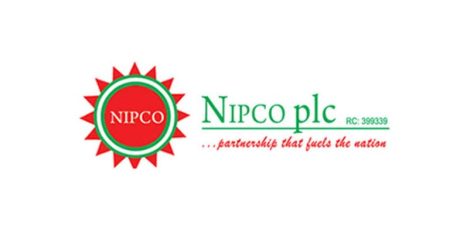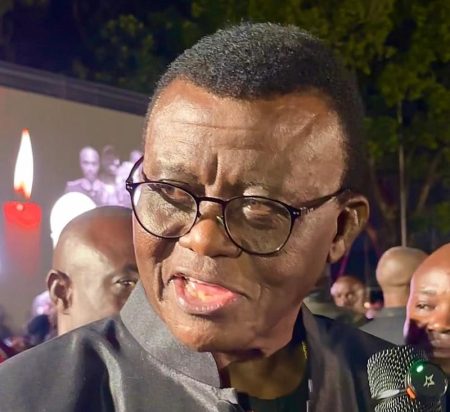Ghana’s petroleum agreements are under intense scrutiny, with legal and policy experts advocating for a comprehensive overhaul to ensure fairer returns for the nation and safeguard long-term national interests. The current frameworks, they argue, are outdated and inadequate in addressing the evolving dynamics of the petroleum industry, leaving Ghana vulnerable to exploitation and hindering its ability to maximize the benefits from its natural resources. This call for reform follows a contentious Memorandum of Understanding (MoU) signed between the government and key oil partners, including Tullow Oil, Kosmos Energy, and the Ghana National Petroleum Corporation (GNPC), extending existing licenses for the West Cape Three Points and Deepwater Tano blocks. While proponents of the deal highlight the potential for increased investment and production, critics express concerns about the lack of transparency and the long-term implications of the extension, particularly in light of ongoing disputes with Tullow Oil over tax liabilities. The core issue at stake is Ghana’s ability to negotiate favorable terms that align with its developmental goals and protect its sovereign rights over its petroleum resources.
A central argument for reform revolves around the need for greater transparency and public participation in the negotiation and review of petroleum agreements. The current process is often criticized for its opacity, leaving citizens in the dark about the terms and conditions under which their resources are being exploited. This lack of transparency fuels suspicion and undermines public trust in the government’s ability to manage the petroleum sector effectively. Experts argue that open and inclusive processes are essential for ensuring accountability and preventing corruption. Public scrutiny can help identify potential loopholes and ensure that agreements are aligned with national interests. Moreover, a participatory approach can foster a sense of ownership among citizens and ensure that the benefits of resource extraction are shared equitably.
The timing of the recent MoU with Tullow Oil and other partners has also drawn sharp criticism, particularly given the ongoing tax dispute with Tullow. Renewing the contract well before its expiry date, while significant tax liabilities remain unresolved, raises questions about the government’s negotiating position and its commitment to securing the best possible deal for Ghana. Critics view this move as premature and potentially disadvantageous to the country, as it locks in terms and conditions that may not reflect current market realities or address the outstanding tax issues. This situation underscores the need for a more strategic and cautious approach to contract negotiations, with a clear focus on maximizing value for Ghana and ensuring that its interests are protected.
Furthermore, experts advocate for a shift towards a more technocratic and less politically influenced approach to contract negotiations. They argue that past agreements may have been unduly influenced by political considerations, leading to suboptimal outcomes for Ghana. A technocrat-led approach, driven by data and expert analysis, can help ensure that decisions are based on sound economic and technical principles, rather than political expediency. This requires empowering and insulating negotiators from political interference, allowing them to focus on securing the best possible terms for the country. Building institutional capacity within relevant government agencies is crucial for strengthening Ghana’s negotiating position and achieving more favorable outcomes in future agreements.
The call for a comprehensive review of existing petroleum agreements is gaining momentum, with experts recommending the establishment of a high-level independent committee to undertake this task. Such a review would provide an opportunity to assess the effectiveness of current agreements, identify areas for improvement, and develop a more robust framework for future negotiations. The review should encompass all aspects of the agreements, including fiscal terms, environmental safeguards, and local content provisions. It should also consider international best practices and benchmark Ghana’s agreements against those of other resource-rich countries. A thorough and independent review is crucial for ensuring that Ghana’s petroleum resources are managed in a transparent, accountable, and sustainable manner.
Finally, there is a growing consensus on the need for stronger parliamentary oversight of the petroleum sector. Parliament’s role in scrutinizing and approving petroleum agreements is essential for ensuring transparency and accountability. Enhanced parliamentary oversight can help prevent sweetheart deals and ensure that agreements are in the best interests of the nation. This requires strengthening Parliament’s capacity to analyze complex technical and financial aspects of petroleum agreements. Furthermore, public hearings and consultations should be conducted to ensure that citizens have a voice in the decision-making process. A robust and effective parliamentary oversight mechanism is crucial for upholding the rule of law and protecting Ghana’s petroleum resources for future generations.














